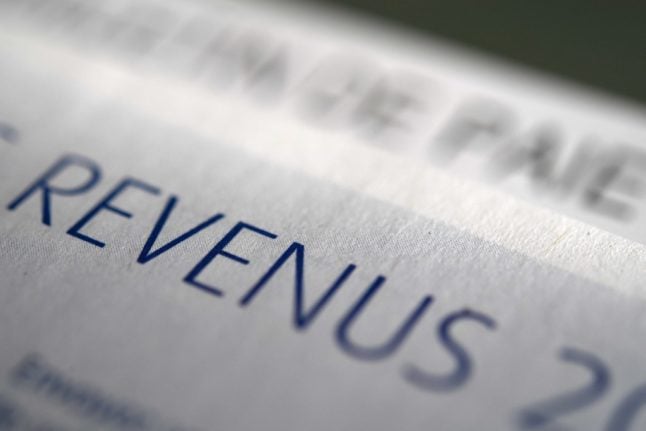Last year the strict nationwide lockdown saw the dates for the annual déclaration des revenues pushed back as all public offices, including tax offices, were closed to the public.
This year has reverted to the normal timeframe, with declarations opening online on Thursday, April 8th.
The deadline to have the return completed, however, depends on where you live:
- People living in département numbers 1 to 19 and people who are not full-time residents in France have until 11.59pm on Wednesday, May 26th to make their declaration
- People living in départements 20 to 54 have until 11.59pm on Tuesday, June 1st
- People living in départements 55 to 95 and all overseas French territories have until 11.59pm on Tuesday, June 8th
READ ALSO What the French government doesn’t tell you about filing taxes
Making the declaration online is compulsory this year, unless you live in a zone blanche with no internet connection. People who are making the declaration for the first time and who have not received an email from the tax office confirming their registration can also do the declaration on paper.
So now that declarations are open, here’s what you need to know:
Liable
First you need to figure out whether you need to make a declaration. If France is your main residence you almost certainly do, even if all your income comes from abroad.
This frequently catches out foreigners who, for example, live in France but whose only income is a pension from the UK or USA. Double taxation agreements mean you won’t have to pay tax twice on the same income, but you do have to fill in the declaration.
You may also need to make the declaration if you don’t live in France but do earn money here – including money from renting out property.
Here’s a guide to who needs to do the declaration.
First-timers
If this is your first year declaring tax in France you need to first register on the impots.gouv.fr site. You can find instructions on how to do that HERE.
Once you are registered you will get a numéro fiscale (tax number) without which you cannot make your declaration.
READ ALSO Ask the expert – what the put in each section of the French tax declaration
Get your paperwork together
The tax declaration can be complicated so it’s worth figuring out in advance what you will need to declare.
As well as any income you make in France you also have to tell the French taxman about any income from abroad, including a pension from another country, rental income if you rent out a property in another country and any income from shares or investments in another country.
More detail HERE on what you need to declare.
All foreign bank accounts have to be declared too, even if they are dormant. So if you have a junior savings account left over from when you were a child, unless you have closed it you will need to dig out the account number and branch code ready to add to your declaration form.



 Please whitelist us to continue reading.
Please whitelist us to continue reading.
Would i need to do this even if I’m a stay at home mum?
Yes, you’ll need to file you’ll just have no income to declare.
When I moved to France my company initially paid for an accountancy firm to fill in my return for me. Now I’m having to do it myself it’s a bit daunting. In the UK I know I could find a chartered accountant to help me with the submission to HMRC. Does anyone know if it is possible to pay someone to do this for me in France too, and how would I find someone if that’s the case?
I own an apartment in Paris but live in NY. My problem is always finding out about my Taxe Fonciere and Taxe D’Habitation by getting a late notice in the mail (actual mail, not email)! Does anyone know how I can find out the amount owed and what the actual filing dates are for these taxes?
Are you registered on impots.gouv.fr? I had to submit a query about my charge there and received a revised notice; I was also able to pay the charge automatically
Does anyone know yet what this year’s tax declaration official exchange rate is, Sterling into Euro, please?
I’ve been living in France for the last 10 months, applied for Carte de sejour but haven’t got it through yet. Haven’t earned anything since I’ve been here due to covid. Do I have to fill out a tax declaration or not as I haven’t got residency yet? Any help appreciated or if anyone knows who to ask, thank you!